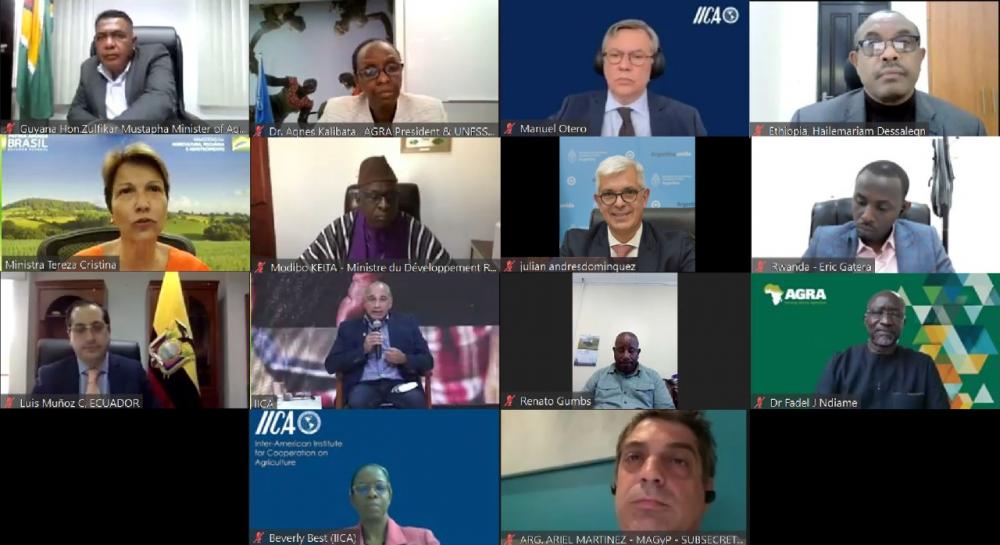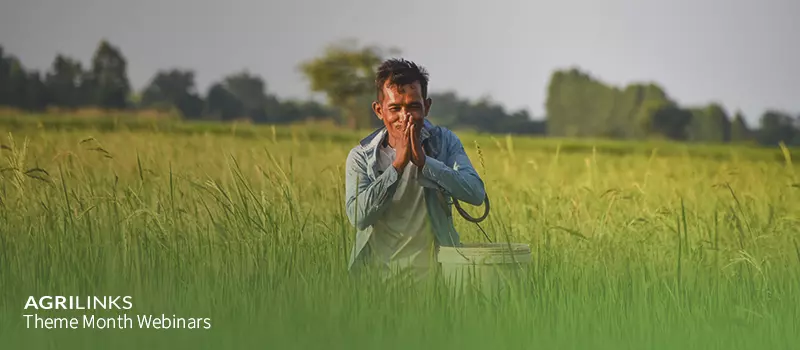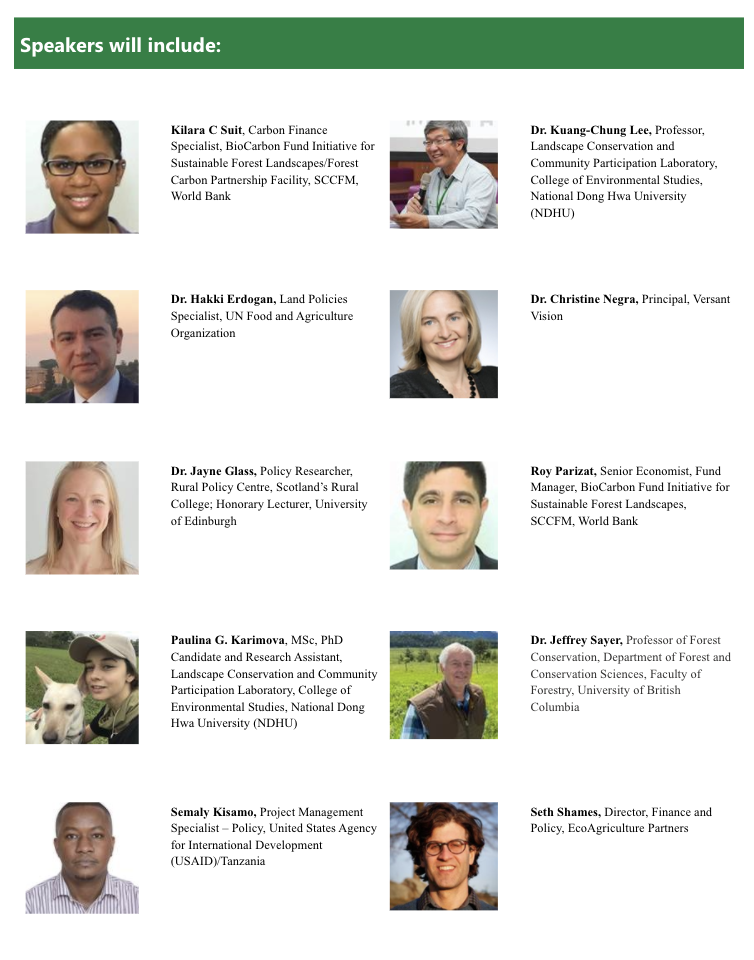19 January 2022 (IICA). Ministers of Agriculture of Africa and the Americas committed to working together to develop a cooperation agenda, and agreed that the two continents face common challenges and opportunities with respect to transforming their agrifood systems to make them more sustainable and inclusive.
The agreement was reached during the
First High-Level Roundtable between Africa and the Americas, convened and organized by the Alliance for a Green Revolution in Africa (AGRA) and the
Inter-American Institute for Cooperation on Agriculture (IICA), entitled “Building Bridges for Future Cooperation in Agrifood Systems”.
The high-ranking officials who participated in the virtual event agreed that, beyond the cultural and historical similarities and differences between the Americas and Africa, the continents face a unique and common challenge: that of building knowledge-intensive agriculture, with a human face, while caring for the environment and considering the areas of nutrition and health, which, they agreed, is necessary in order to produce more and higher quality food.
To this end, they agreed to develop agendas throughout the year to link technical assistance institutions
for agriculture – such as
Brazil’s Embrapa,
Argentina’s INTA and all
national research organizations in Latin America and the Caribbean, which play a key role – and their scientists and professionals, in order to deepen exchanges. They also proposed holding a ministerial summit on agriculture in Africa and the Americas in the second half of 2022.
Among the participants in the dialogue were Zulfikar Mustapha, Minister of Agriculture of Guyana; Agnes Kalibata, former Minister of Agriculture of Rwanda, the UN Secretary-General’s Special Envoy to the 2021 Food Systems Summit and President of AGRA; Manuel Otero, Director General of IICA; Hailemariam Desalegn, former Prime Minister of the Republic of Ethiopia and President of AGRA’s Board of Directors; Tereza Cristina, Minister of Agriculture, Livestock and Food Supply of Brazil; Modibo Keita, Minister of Rural Development of Mali; Julián Domínguez, Minister of Agriculture, Livestock and Fisheries of Argentina; Eric Gatera, Chief Technical Advisor of the Ministry of Agriculture and Animal Resources of Rwanda; Luis Muñoz, Deputy Minister of Rural Development of Ecuador; Renato Alvarado, Minister of Agriculture and Livestock of Costa Rica; Renato Gumbs, Director of Agriculture of Saint Vincent and the Grenadines; Fadel Ndiame, Deputy President of AGRA; Beverly Best, Director of External and Institutional Relations of IICA; and Ariel Martínez, Undersecretary for Policy Coordination of the Ministry of Agriculture, Livestock and Fisheries of Argentina.
Resource:
Fanzo J. et. al (2021)
Viewpoint: Rigorous monitoring is necessary to guide food system transformation in the countdown to the 2030 global goals Food Policy 104 (2021) 102163, 20 p.
A rigorous, science-based monitoring framework can support evidence-based policymaking and the work of those who hold key actors accountable in this transformation process. Monitoring can illustrate current performance, facilitate comparisons across geographies and over time, and track progress.
Related: 20 October 2021. Measuring Food System: Transformation and Performance Post-Summit. This webinar was hosted by IICA & McGill University’s M.A. Gilliam Institute for Global Food Security to celebrate World Food Day.












.jpg)
.webp?h=d1cb525d)
